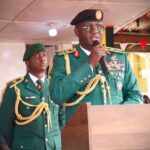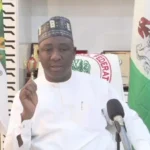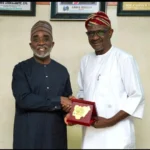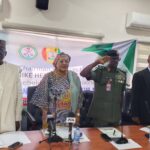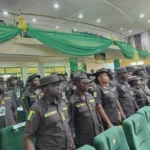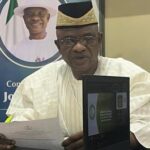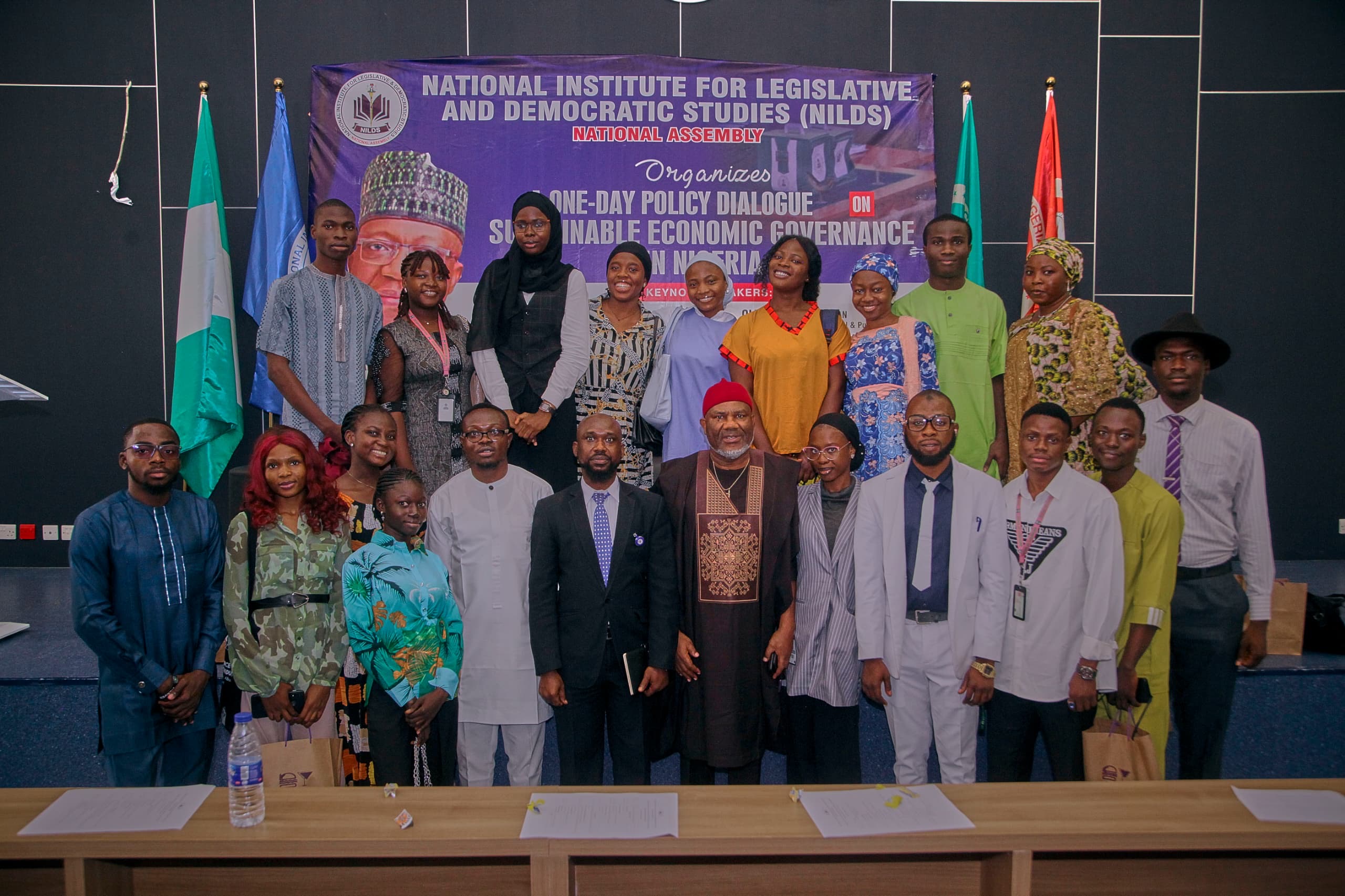By EricJames Ochigbo
The Minister of Budget and National Planning, Sen. Atiku Bagudu, has said that Nigeria must attract at least 100 billion dollars investments annually to become a middle income country by 2050.
Bagudu made this statement on Tuesday at a one-day policy dialogue on “Deepening Legislative-Executive Synergy for Effective Economic Governance in Nigeria.
The event was organised by the National Institute for Legislative and Democratic Studies (NILDS) in Abuja.
The minister explained that the agenda 2050 was not an over-ambitious plan, but a realistic pathway to prosperity.
He said that President Bola Tinubu had demonstrated that the dream was realisable and had taken risks never attempted in developing countries adding that the results were beginning to show.
According to him, the renewed hope agenda of President Tinubu is a deliberate attempt to reverse years of weak fiscal capacity and systemic distortions.
He said that without bold choices and stronger synergy between the legislature and the executive, Nigeria risked falling further behind its peers in global economic competitiveness.
“We calculated and to achieve this objective, Nigeria requires at least 100 billion dollars investment per annum from both the private and public sectors.
“Agenda 2050 is structured into six medium-term plans, beginning with 2021–2025 and moving in five-year phases until 2050.
“As of June 2023, our revenue-to-GDP ratio stood at nine per cent, one of the lowest in the world, compared to the EU average of 31 per cent; that has now risen to 16 per cent due to recent reforms, but we are still punching below our weight,
“Brazil, a federation like Nigeria, has a federal budget of about 700 billion dollars, while ours is just 36 billion dollars.
“Japan, with roughly half of Nigeria’s population, spends more than 20 trillion dollars annually. These disparities explain why outcomes are inevitably different,” he noted.
Rep. Afam Ogene (LP-Anambra), said that such dialogue was needed to keep the polity running and that there was need to break it down for ordinary citizen to understand.
He said that the Nigeria was still grappling with 2024 budget implementation as at September 2025 and local contractors were protesting on the streets demanding payments for jobs done in 2024.
“A government that is not able to meet its obligation is bankrupt; in simple economics, budget is the supreme law for the year, made up of revenue and expenditure.
“Engagement must continue because secrecy in government is the incubation of corruption; we need to demand more explanation,” he said.
Earlier, the Director-General of NILDS, Prof. Abubakar Sulaiman, said that the dialogue was convened to foster stronger alignment between legislative oversight and executive reform priorities.
Represented by the Director, Department of Legal Services, Dr Shauibu Danwanka, Sulaiman explained that Nigeria’s economic fragility manifested in high inflation, debt servicing pressures, currency volatility and weak growth.
The director-general explained that the economic situation of the country demanded a united front from both arms of government.
“The dialogue is not only about diagnosing problems, but also about providing actionable recommendations for building a resilient economic governance framework.
“The legislature must use its budgetary and oversight powers to reinforce reform implementation and safeguard accountability,” he added.
In his remarks, the Inspector-General of Police, Mr Kayode Egbetokun commended the organisers of the dialogue that brought all relevant stakeholders together to discuss the way forward for the country’s economy.
Represented by the Commissioner of Police, Ms Mary Obasi, Egbetokun said that all hands must be on deck to salvage the economy of the country as continuous borrowing was not the way to go.
“We need to be committed to change the narrative so that Nigeria can regain her respect in the comity of nations.
“Let us know why the economy is not doing well, let us know the strategic measures to put in place, the roadmap to achieve what we need to achieve.
“Let us discuss what needs to be done to have a greater economy that will be sustainable,” he said. (NAN)
Edited by Francis Onyeukwu

